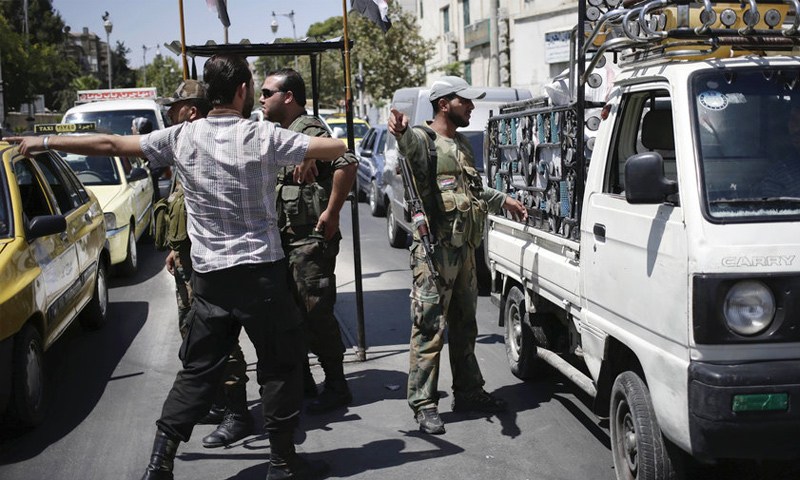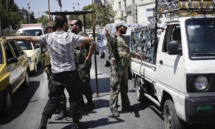"All rebels based in the northern countryside of Hama will come under government siege when Khan Sheikhoun totally falls into the hands of the regime," the head of the observatory, Rami Abdel Rahman, said.
Khan Sheikhoun is located on the international M5 Aleppo-Damascus highway, which also passes through Homs.
The town has been a key battleground in Syria's conflict, now in its ninth year.
In April 2017, it was the site of a sarin gas attack that killed dozens of people. A UN investigation blamed the regime for the attack, but Damascus denyed the charge.
The recent surge in violence in Idlib's southern countryside has prompted thousands of civilians to flee north to rural areas in Idlib province or near the Turkish border.
The Syrian Observatory for Human Rights said government forces and their Russian allies carried out 68 airstrikes on areas in the southern and western countryside of Idlib on Tuesday.
It added that some 695 artillery shells struck rebel-held areas in southern and south-eastern Idlib, in addition to areas in the northern countryside of Latakia.
The Turkish-backed National Liberation Front (NLP), a militant group fighting against the Syrian government, confirmed its retreat in a statement: "It was natural that our units change their positions and move away after securing the supply routes became difficult."
According to local activists, thousands of people fled the southern countryside of Idlib earlier Tuesday. Cars packed with children and women were seen arriving in the city of Idlib and in the northern countryside of the province of the same name.
Marc-Andre Hensel, director of Syrian Assistance with the aid organization World Vision, described the situation as "terrible."
"The fleeing people are desperate and there is far too little help for so many," he said in a statement.
"Women were giving birth in open fields, without any privacy and adequate medical supplies. The international community needs to do more to put an end to this suffering," Hensel said.
Last month, the United Nations said the government's campaign to capture Idlib has displaced more than 400,000 people since April.
More than 900 civilians, including 235 children, have been killed since the onslaught began in late April, according to the Observatory.
The violence in Idlib has shattered a truce deal reached in September between Russia and Turkey to establish a demilitarized buffer zone in the Idlib enclave.
Turkish Foreign Minister Mevlut Cavusoglu on Tuesday warned that the Syrian "regime should not play with fire," a day after a Turkish military convoy was attacked while en route to one of Turkey's observation posts in Idlib province.
Turkey said three civilians were killed and 12 wounded in the attack.
The attack targeted Turkey's 9th observation post, he said, but added that Ankara had no intention to move the post.
"Idlib is a critical issue [for] the future of Syria ... so we have to guarantee a ceasefire there," Cavusoglu told a press conference in Ankara. He said the Syrian government "does not believe in a political solution - it now seeks a military solution."
Russia's military is monitoring the situation in Idlib, Russian Foreign Minister Sergei Lavrov said on Tuesday, in comments carried by state news agency TASS.
"Our servicemen are staying on land in the Idlib de-escalation zone, which was created by a document signed in September last year in Sochi by Presidents [Vladimir] Putin and [Recep Tayyip] Erdogan," Lavrov said.
Russian President Vladimir Putin on Monday voiced his support for the Syrian army "to neutralize these terrorist threats."
---------------------------------------------------------------------------------------------------------









 Home
Home Politics
Politics











